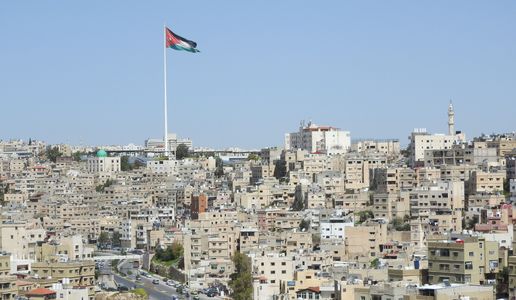Alumni Spotlight: Kelberer in Middle East Policy Journal
Vicky Kelberer (Pardee ’17), currently a Fulbright Specialist in Belgium, recently published her thesis on refugee policy in Jordan in Middle East Policy Journal.
Kelberer’s thesis, entitled “Negotiating Crisis: International Aid and Refugee Policy in Jordan,” is set to be published in the print edition of Middle East Policy Journal on December 7, 2017.
From the text of the thesis:
Since 2003, the Hashemite Kingdom of Jordan has been severely tested by armed conflicts in Iraq and Syria, taking in hundreds of thousands of refugees and experiencing economic and demographic shocks as a result. Jordan now hosts more than 654,000 Syrian refugees registered with the UN High Commissioner for Refugees (UNHCR);1 the 2015 census estimated that there were 1.26 million Syrians living in the country.2 Approximately 79 percent of the registered Syrian refugees live outside of Jordan’s two refugee camps for Syrians, Zaatari and al-Azraq.
Over the past six years, more than 5.3 million Syrians have fled the violence and deprivation of the civil war. The vast majority — 4.91 million people — have settled in just three host states: Turkey, Lebanon and Jordan.3 The arrival of so many in such a short time has had significant effects on the political, economic and social climates of the host states. While the long-term impact of these trends has yet to fully manifest itself, small countries like Jordan and Lebanon will be affected for years and even decades to come, if history is any indication.
The vast majority of Syrian refugees in the region live outside of camps and are classified as “urban,” “non-camp” or “self-settled.” The majority of non-camp refugees live in towns and cities, which offer better access to services, more economic opportunity, and the ability to move around and integrate themselves into the local community.4 Urban refugees face significant barriers to accessing aid, as they are more difficult for organizations to identify and reach; they live alongside other marginalized groups; and they often do not register with UNHCR or other agencies for fear of identification, among other issues. Urban refugees also have more direct impact on the host society’s infrastructure, services and economy than refugees in camps, and this can lead to a lower standard of living for the host community.
Kelberer is a Fulbright Specialist in Belgium and recently completed a research consultancy with the Jordan INGO Forum on the Jordan Compact. She is a co-founder of the Pardee School Initiative on Forced Migration and Human Trafficking and works as an independent consultant for the International Center for Conciliation and the EU Jean Monnet Migration Innovation grant.
